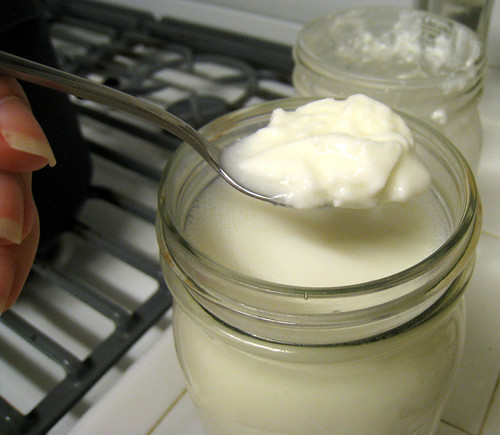The Health Benefits of Probiotics
In Part 1 of our Probiotic Primer, I discussed what probiotics are (“friendly” bacteria that help keep our GI systems humming along in a healthy manner) and where to find them (dairy products like yogurt, kefir and buttermilk, fermented foods and added to a variety of processed foods). Here in Part 2, we’ll take a closer look at what the science says about using probiotics for specific health issues.

How Can Probiotics Help Me?
There is a wide variety of clinical research currently being conducted to evaluate the safety and effectiveness of probiotics for medical conditions. Our knowledge of probiotics is constantly growing, but what’s not known is exactly how probiotic bacteria strains are involved in preventing or treating diseases. Nevertheless, clinical research does support a beneficial role of probiotics in several areas of health:
GI Conditions
The most convincing evidence of probiotics’ beneficial health effects is found in the area of gastrointestinal health. This makes perfect sense because probiotic bacteria live in the gut, and it’s there that they perform their most significant role—helping to balance the ratio of “good”’ and “bad” bacteria in the GI system. The science strongly shows that several strains of probiotics are effective in shortening the duration and severity of acute diarrhea and antibiotic-associated diarrhea. These benefits are seen in studies of adults as well as children.
Lactose intolerance
People with lactose intolerance cannot digest significant amounts of lactose (a sugar found in milk and dairy products) because their bodies don’t produce enough of the enzyme needed to break down the sugar. According to the National Institutes of Health, an estimated 30-50 million American adults are lactose intolerant. Research indicates that probiotics can ease the uncomfortable symptoms that accompany lactose intolerance.
Immune System Health
Cells that are present in the digestive tract are connected to the body’s immune system. Some probiotic strains show the ability to enhance the immune system defenses of these intestinal cells.
But Wait, That’s Not All!
Many studies on probiotics’ effect on health are underway. There is preliminary research suggesting that probiotics may also be beneficial for the following conditions:
- Some types of cancer (colorectal, bladder)
- Atopic dermatitis
- High blood cholesterol levels
- Urinary tract infections
- Stomach ulcers caused by H. pylori infection
- Inflammatory bowel disease (such as Crohn’s disease)
- Gastroenteritis relapses caused by C. difficile bacteria
- Irritable bowel syndrome
- Skin infections
- Respiratory infections in children
- Tooth decay and periodontal disease
Are There Risks Associated With Taking Probiotics?
Many of the foods that naturally contain probiotic cultures—such as kefir, yogurt, and miso—have a long history of safe use. And although the newer probiotic foods (those that have probiotics added to them) don’t have history on their sides, they are considered safe for consumption by healthy adults. Side effects from consuming probiotic foods, if they occur at all, tend to be mild and digestive in nature (such as gas or stomach bloating). Probiotic supplements are another story, as they could cause more serious side effects in people with underlying health conditions. Plus, there is little known about the safety of taking probiotic supplements for long periods of time. Play it safe and consult with your doctor before beginning to take a probiotic supplement.
Want more information?
The National Center for Complementary and Alternative Medicine (part of the National Institutes of Health) has reliable information for consumers about probiotics and health.